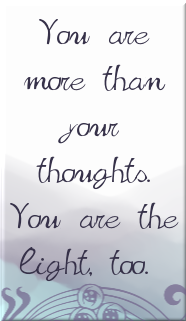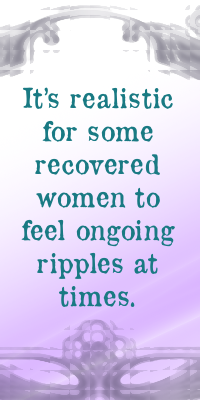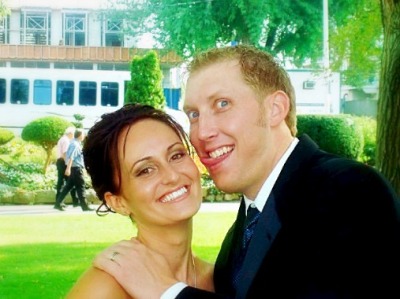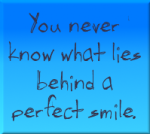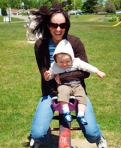This post is inspired by a YouTube video featuring an audio clip of a woman who called Y94 in Fargo, ND. Her rant? Deer crossings in high traffic areas and the refusal of the Department of Transportation to move them to “lower traffic areas.” She’s written letters too.
I reached out to some deer in the ND area and shared Donna’s thoughts with them. They agreed to talk with me. The following is a transcript of our meeting, held deep in the forest, in an unnamed location.
“Wow. So this is nowhere near any type of civilization. Is this how you prefer to live?”
“It’s how we’ve always preferred to live, actually, since before that nosy Columbus popped over here and dragged the rest of Europe with him. Sure, we had the natives to contend with but hey, let’s face it – horses? Distant cousins and not given to mowing us down like the SUV’s and 18-wheelers of today.”
“I noticed on the way here that the Interstate divides the forest for quite some distance. Has this had any effect on nuclear families and their ability to stay close?”
“Of course it has. When the Department of Transportation came in, they didn’t ask us to relocate, we didn’t receive any government funding or consideration. We just woke up one day and BAM. Huge concrete path in between us and our loved ones. Families have been split up for generations. Remarriage, mourning, confused fawns, and don’t ask me about the Great Crossing of ’67.”
(Please note at this point, Rudolph’s eyes watered up and he turned away from me, his voice breaking.)
“Now I have to ask – what’s the Great Crossing of ’67?”
“This story has been handed down for generations, a warning, if you will. A number of us gathered together to talk about reunification with those trapped on the other side. We decided to watch traffic patterns for a few days, get the lay of the Interstate before crossing, you know. Scouts took shifts in trees with binoculars and reported back to those in charge. Once we thought we had established a pattern, we gathered together at the edge of the road, you know, where a sign with a deer stood. We assumed it was safe. There was a huge group of us, hundreds, if not thousands. The first wave, at least 100 deer, tentatively stepped out onto the hard black river. Headlights, a whole herd of them, appeared suddenly out of nowhere, speeding toward us. The first wave froze, the second wave rammed into them, and the third wave jumped over them. The headlights tore through all three waves. The carnage……..” his voice fades, cracking as tears slip down his tawny cheeks.
(I hand him a hanky, he wipes his eyes and blows his nose.)
“Far worse than Donna’s mere three car accidents, then, eh?”
“Far, far worse. Speaking of Donna’s car accidents, does she perchance drive a Red Honda?”
“I… I don’t know. She didn’t say in the recording.”
“If she does, she killed my cousin Louis –smashed him to a pulp. And my Uncle Dasher too. I don’t even want to discuss the hell she wreaked on my Aunt Catherine. Do you know Aunt Catherine can’t even graze by herself anymore? No – we had to rig a wheelchair just so she could haul herself around. The worst part? She can’t just go to the bathroom like she used to with that thing on. It requires regular cleaning. Do you have ANY IDEA how difficult it is to haul a deer hooked up to something like that in and out of a river multiple times a day? Look at these guns I’ve developed just helping her wheelchair stay clean!”
“Wow. I can’t begin to imagine. Nice guns, by the way.”
“Thanks.” He sniffles slightly, looks around nervously.
“Something wrong?”
“You weren’t followed, were you?”
“No, I took all the precautions you mentioned, left my car a mile away from the entry point, parked in a well-lit parking lot, walked in circles for 30 minutes, Gangnam Styled for 20, then hop-skipped-jumped for 10 toward the entry point before donning my ninja gear in a phone booth to slip away. There’s no way I was followed.”
“Mmmk. You know, with the advent of PETA and environmental gurus, we thought we’d be protected from the horrors of vehicular homicide. But alas, we are not. That’s what it is though – vehicular homicide. Why isn’t anyone doing anything about this? Instead, they’re putting up signs telling us we can cross, luring us into believing these particular spots are safer than all the others and then BAM. Mowing us down. Sure, we procreate like rabbits –well, almost– have you seen those little bastards get it on? Christ I’d give anything to have a libido like that. Anyway, I’ve digressed. It’s entrapment -plain and simple- Government endorsed entrapment ending in vehicular homicide. I’m not even the slightest bit apologetic for damage done to any cars. They encroached on our territory, not the other way around. Hell, I don’t see anyone apologizing to US for all the homicide and “population control” you people seem so keen on with our kind.”
“How do you feel about Donna’s request to move the Deer Crossing signs to lower traffic areas? Do you think this would be best for all parties involved?”
“I think it would be very helpful for all involved, but quite frankly, we can’t all read the signs. Most of us can, but some of us are just, well, plain stupid. We’re animals, yanno, and we’re not meant to read signs. And the Great Crossing of ’67 taught us not to trust the signs which is why we rarely cross in herds any more, but rather in single file, waiting for the one deer to cross before venturing across the road ourselves. Then there’s the issue of freezing when we see headlights. That too, is a remnant of the Great Crossing of ’67. A genetic form of PTSD, if you will. So you see, it’s really not our fault that we don’t move when we see a vehicle coming. It’s inbred fear of the ineptitude of humanity and their vehicles. Damn Henry Ford and his ilk.”
“How has the introduction of cell-phones affected the rate of “vehicular homicide” among your kind, if you will be so kind as to elaborate. Do you have that information? Any aggregated data?”
He holds out a hoof. “Does it LOOK like I’m capable of using a keyboard?”
“My apologies. Forgive me. Let me re-phrase: Has there been a noticeable increase in loss since the advent and popularity of cell-phones?”
“Across the board, yes, there has been. People are stupid enough behind the wheel as it is but they’re even more idiotic when they have a cell phone. Amazingly enough, the advent of Starbucks has saved lives because caffeine, as I’m sure you know, allows your kind to stay more alert. Although there have been a few instances when the blended caffeinated goodness in that green and white cup has been so orgasmic that the driver to loses control and mows a few of us down but overall, Starbucks has been good for the our increasing survival rates.”
“Last question – if you could tell Donna one thing, what would you say?”
“Oh, that’s simple. Please move the human crossings to a lower traffic deer area. We were here first.”
(Author’s note: There’s been an update from Donna – it’s a MUST LISTEN.)
 This past week there were several powerful posts about PPD. The writing these days is not only prolific but profound. It’s encouraging to see so many new voices growing and fearlessly sharing their journeys.
This past week there were several powerful posts about PPD. The writing these days is not only prolific but profound. It’s encouraging to see so many new voices growing and fearlessly sharing their journeys. The song is so perfectly fitted for #ppdchat, as Jamie points out –something another Warrior mom, Lindsay, mentioned to her. I haven’t listened to the song since the other day because it’s that powerful.
The song is so perfectly fitted for #ppdchat, as Jamie points out –something another Warrior mom, Lindsay, mentioned to her. I haven’t listened to the song since the other day because it’s that powerful.
